Recently, more Karaoke booths have shown up in shopping malls and business districts in Beijing. This low-cost entertainment facility entered the Chinese market in 2015. But vagueness over song collection copyrights and patent issues left huge challenges before winning the market.
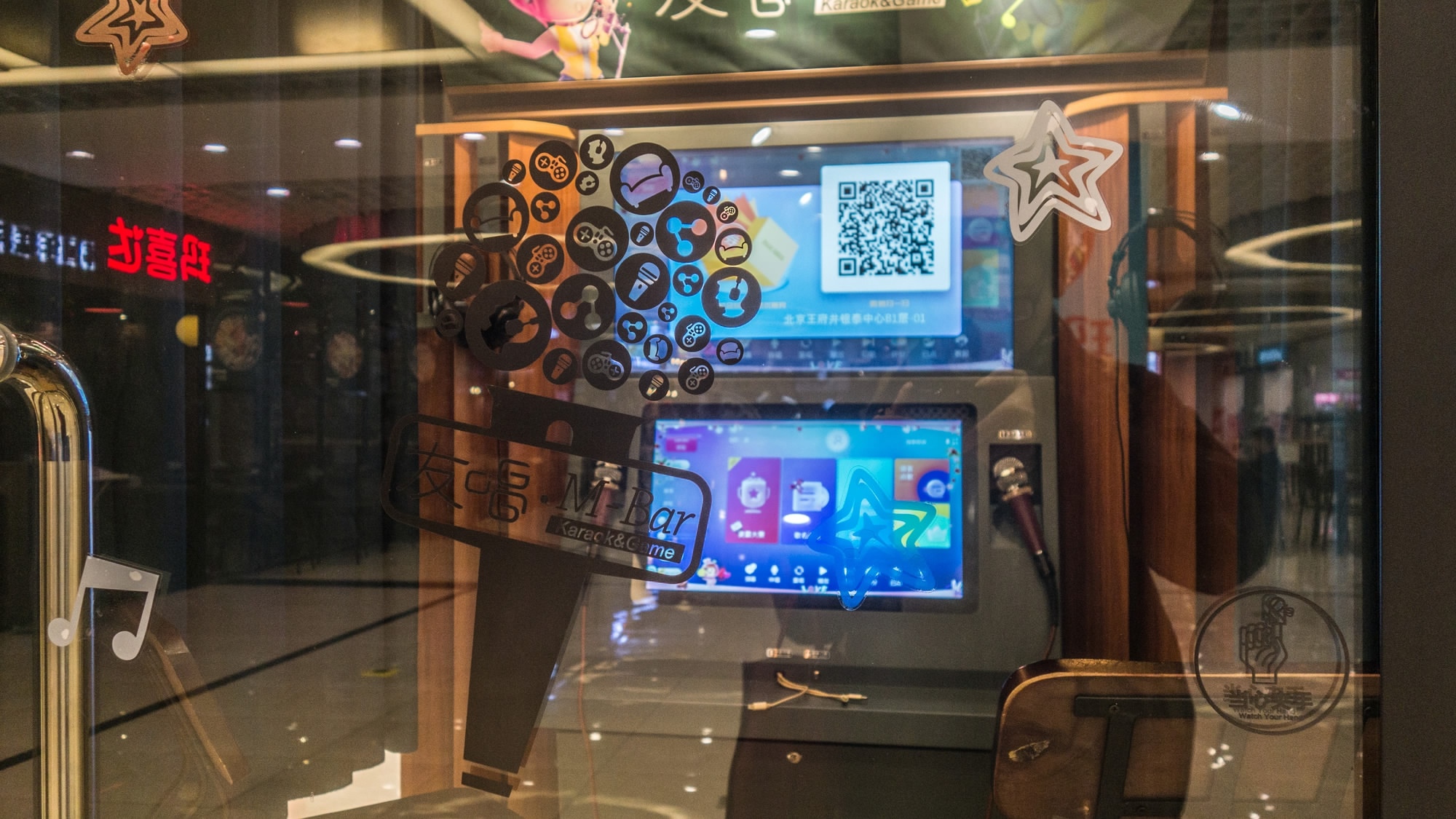
CFP Photo
The booths are around two cubic meters in diameter, with a pair of karaoke machines installed to hold two people inside. Karaoke goers not only can sing for their own delight, but also share the recorded song to others via WeChat. The voice is completely contained in the transparent booth, allowing some privacy.
As convenient and innovative as it is, its shortcomings are quite obvious as well. A Karaoke booth charges by time, for example, such as the Mbar Karaoke booth, which charges visitors 30 yuan every 15 minutes. “Four songs at the most,” Wang, a customer, complained. “You can’t waste even one second and it is quite intense.” Meanwhile, one can only order a song through the network of their phone, which can be quite slow and time consuming if the Karaoke booths are installed in crowded or remote sites. A traditional KTV or Karaoke booth, on the other hand, rents out a room on an hourly basis, and therefore provides the same services of a Karaoke booth at a better price.
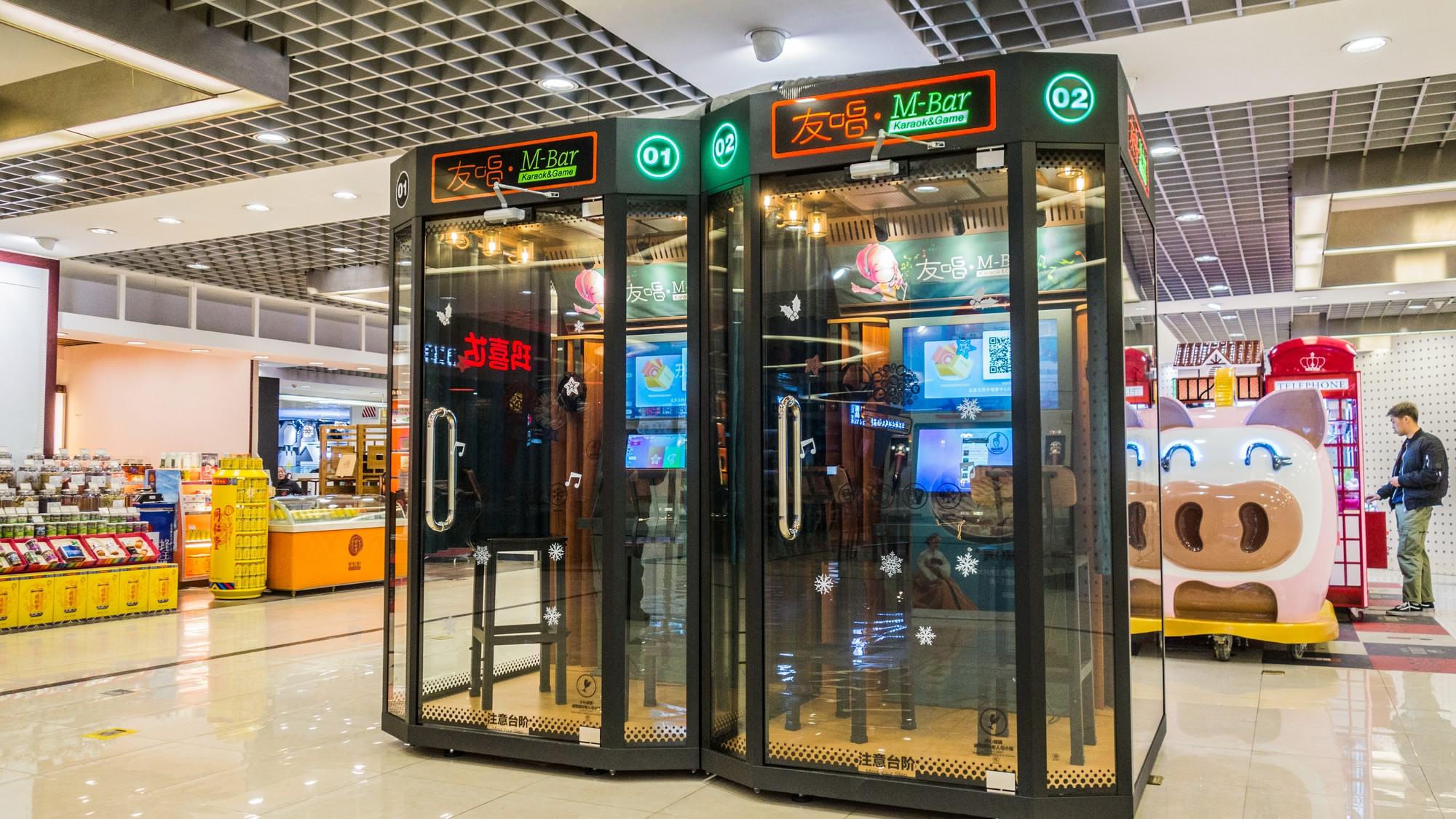
CFP Photo
The average price for a pair of Karaoke booths is around 57,600 yuan (over 8,300 US dollars), which is comparatively low to a traditional Karaoke facility that takes up to millions of RMB to decorate, rent out, and maintain.
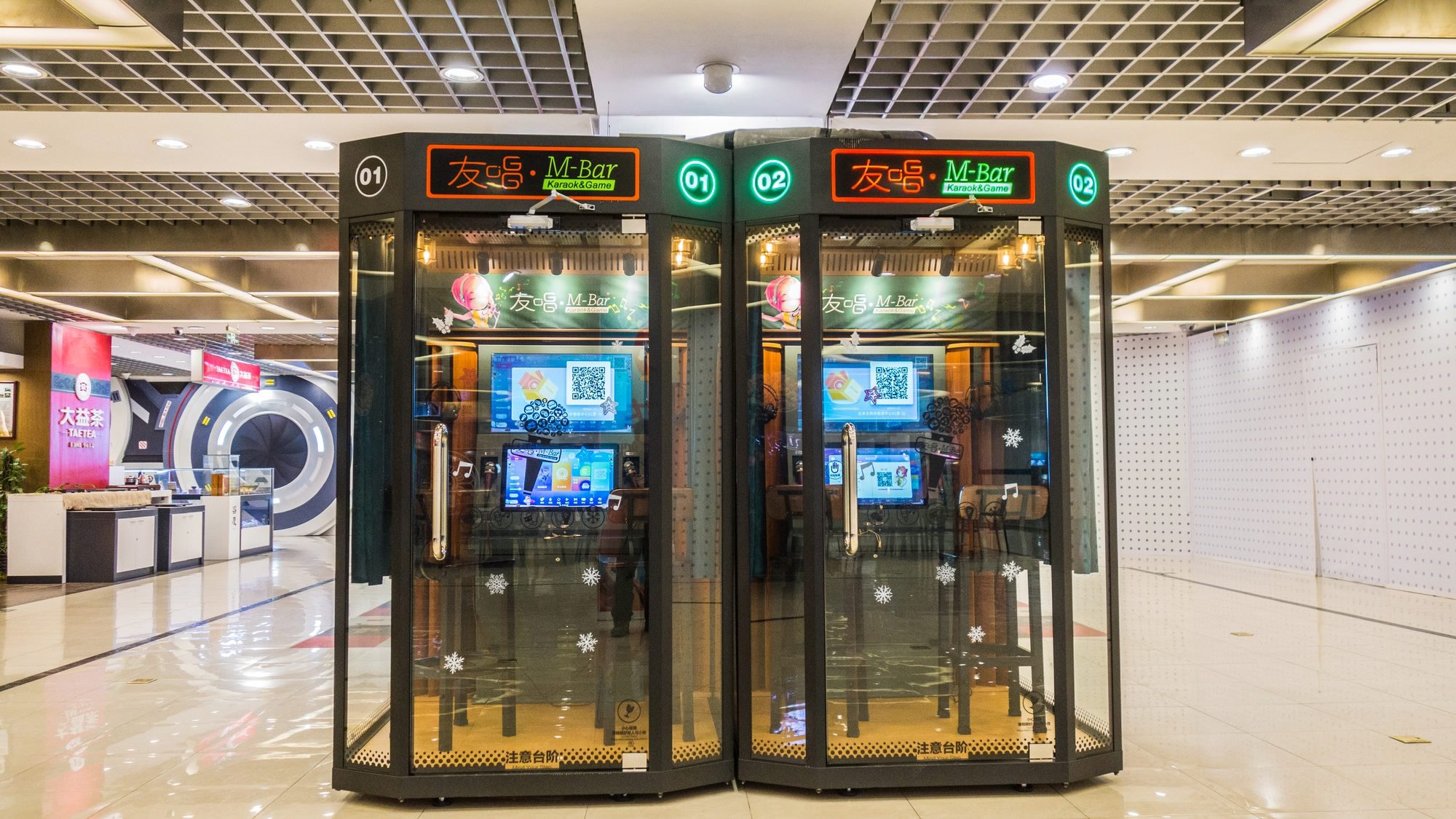
CFP Photo
Shocked by the various apps and large facilities that make singing karoke more approachable and affordable, traditional Karaoke booths have been seen as lacking. Many KTV groups that owned the market during the last two decades have now started shrinking, unable to keep up with the needs of Karaoke enthusiasts.
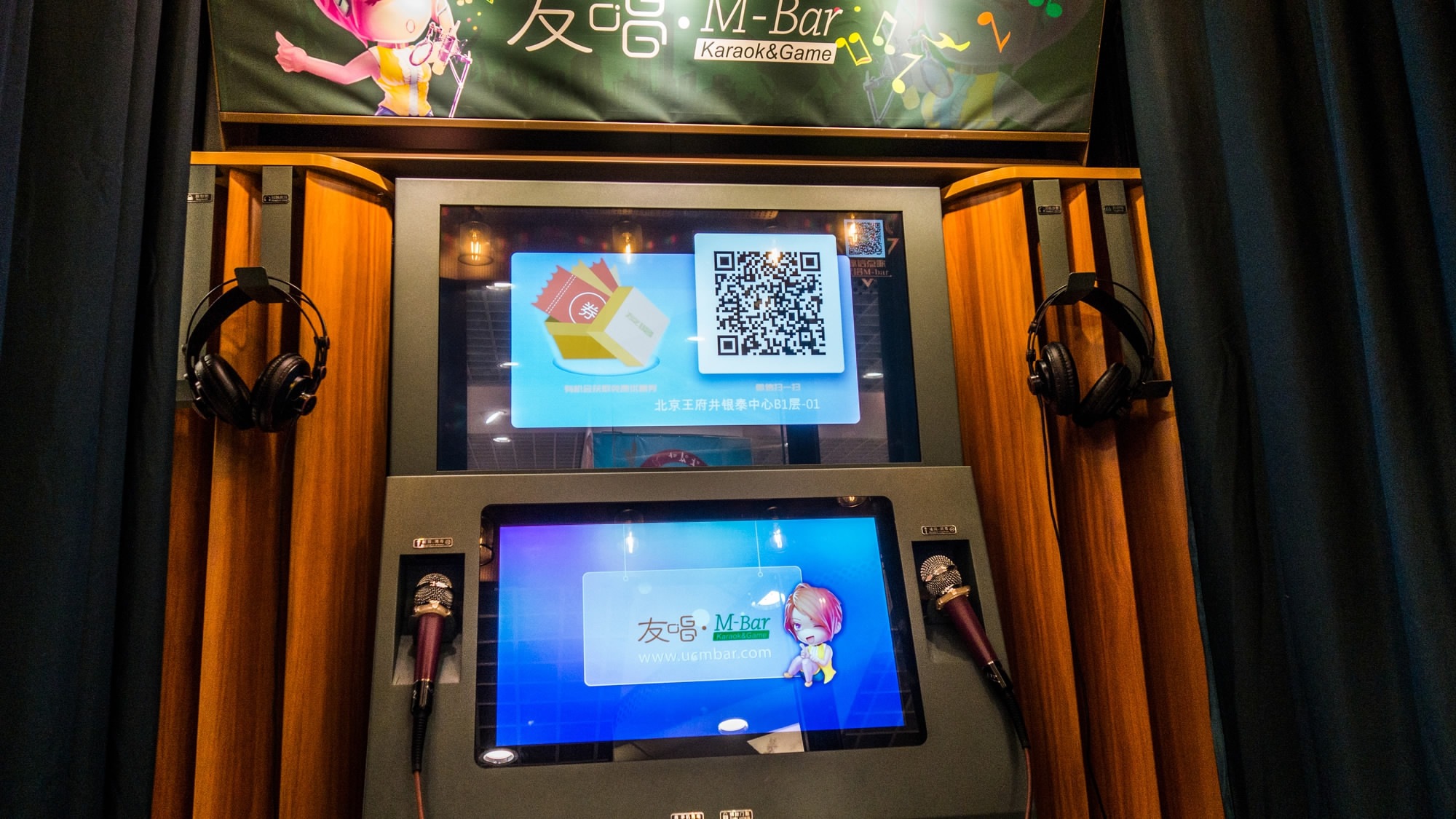
CFP Photo
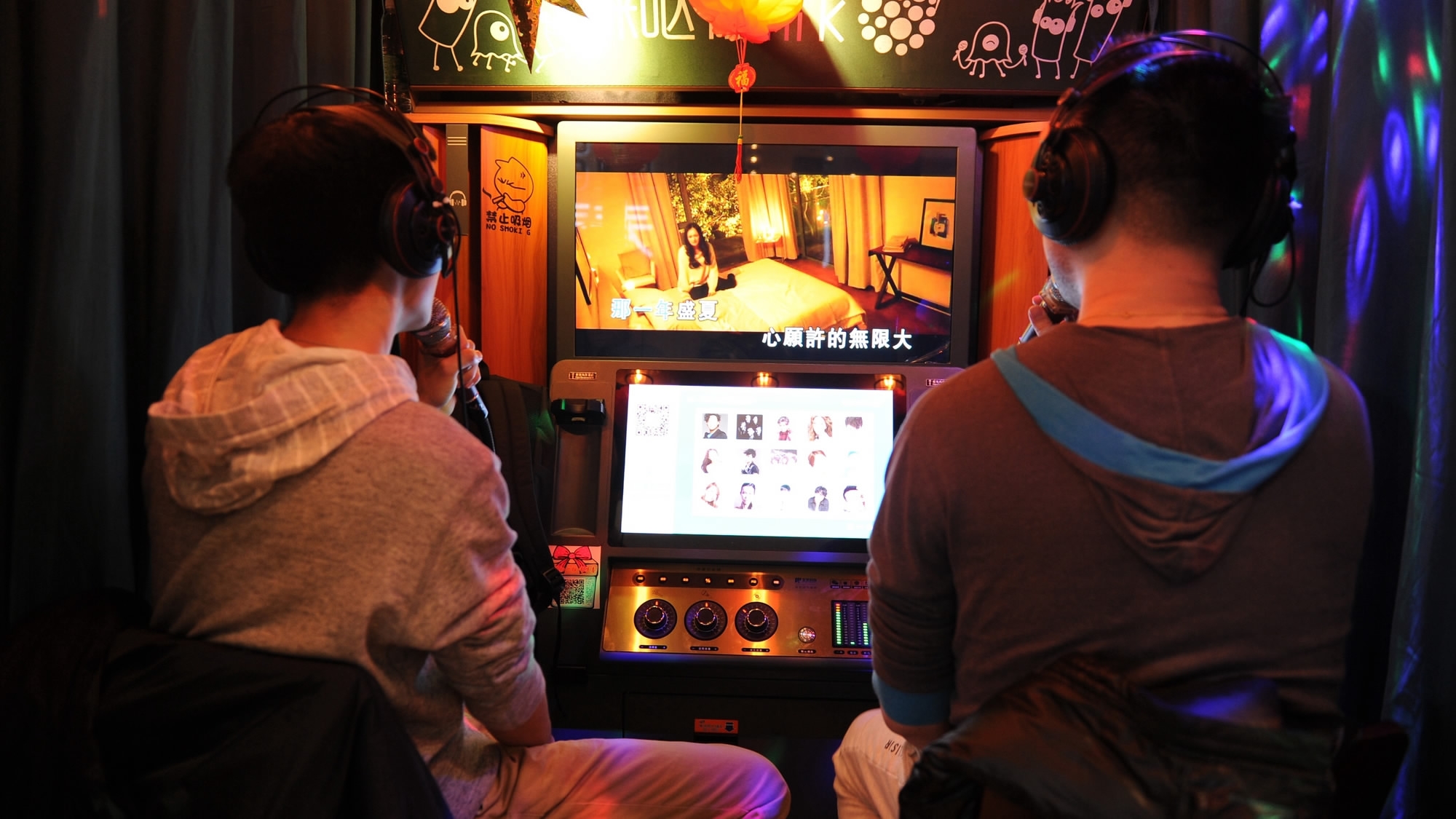
CFP Photo
But whether Karaoke booths have the potential to take over the market is yet to be determined. Voices from the industry suggest that patent right issues and song copyright concerns have left a question mark hanging over this invention.
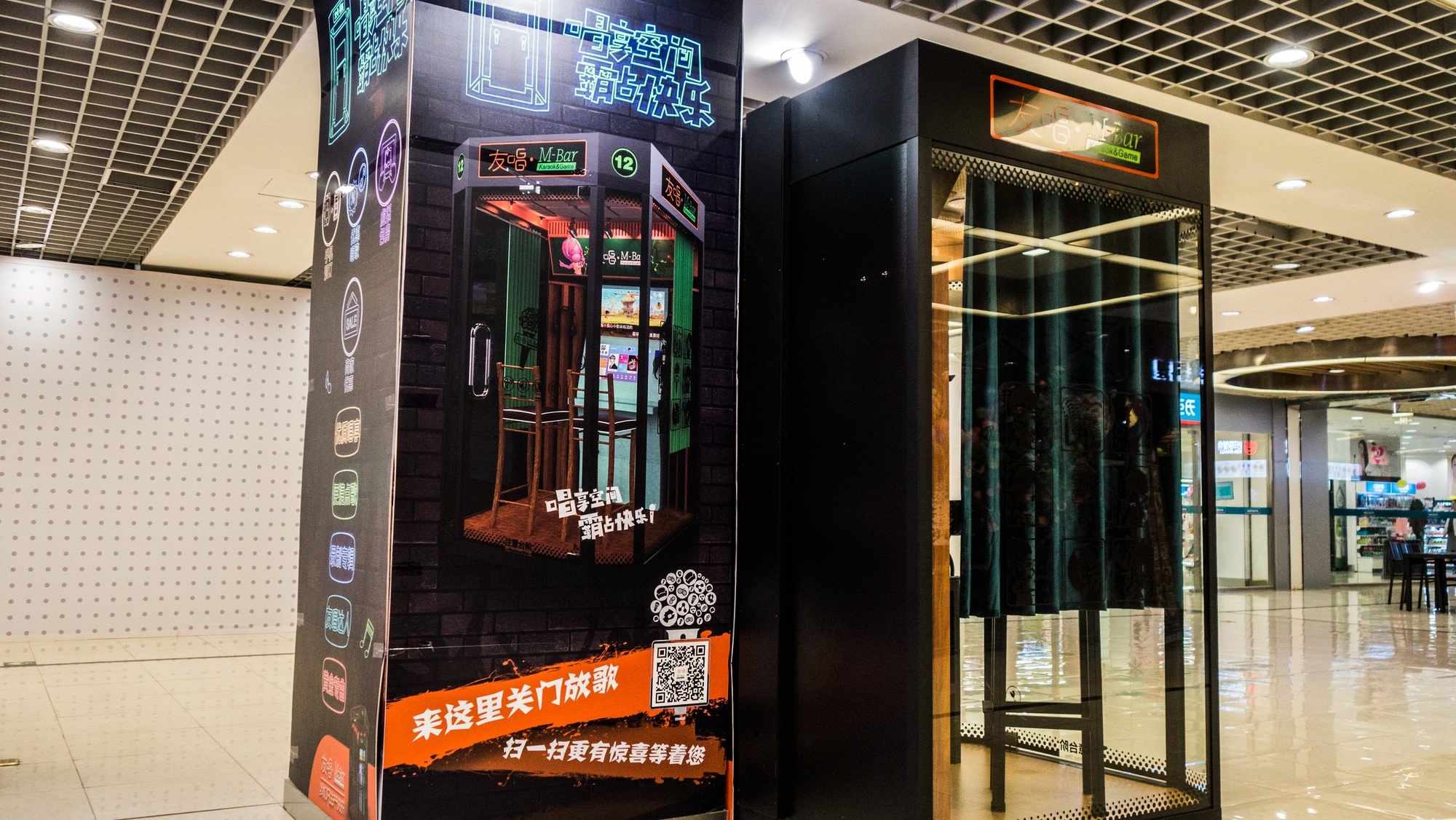
CFP Photo
Besides, there are already similar facilities under different brands that are cutting market share. It is quite doubtful if it can survive homogenization before replacing traditional Karaoke.
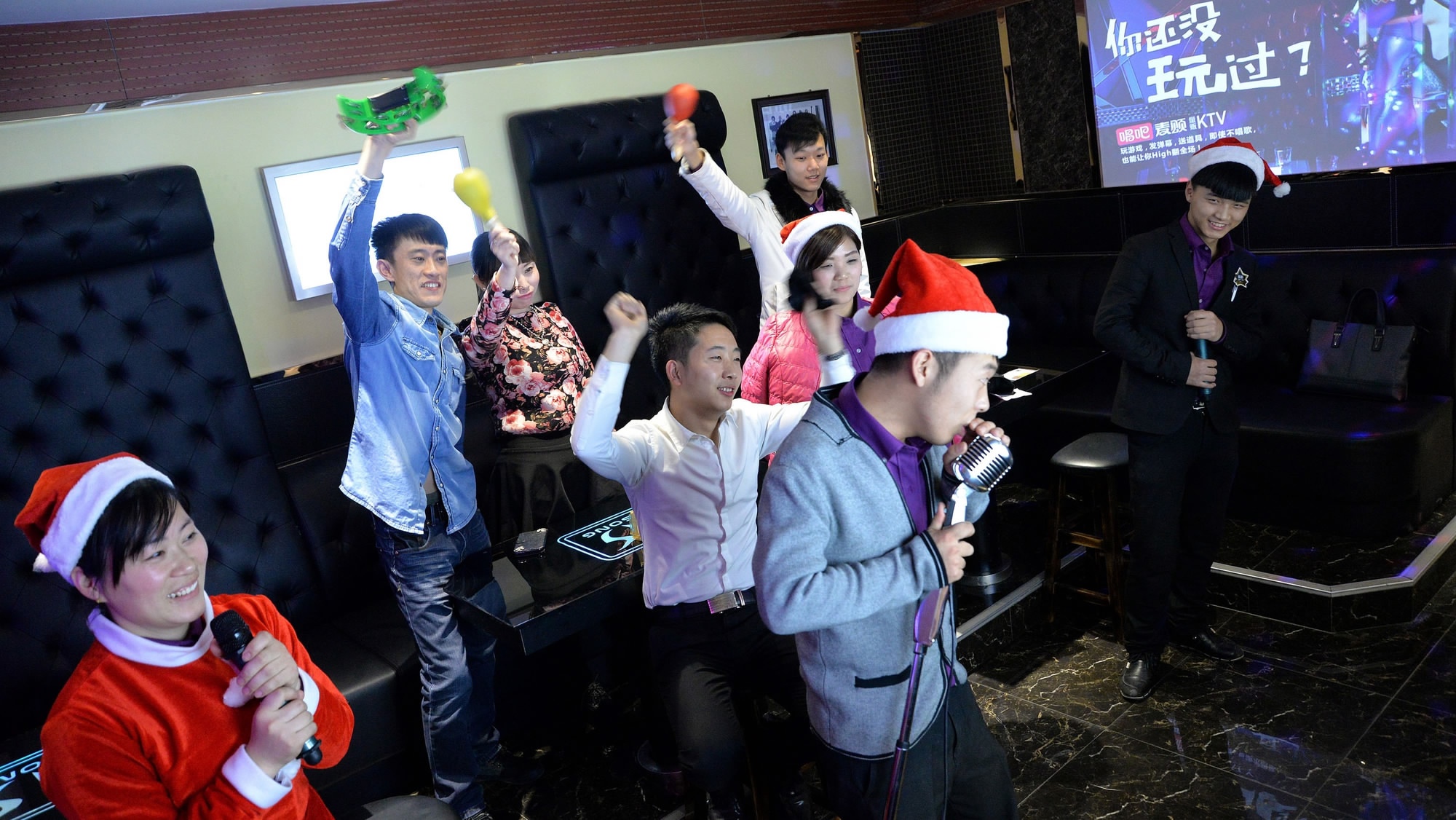
CFP Photo
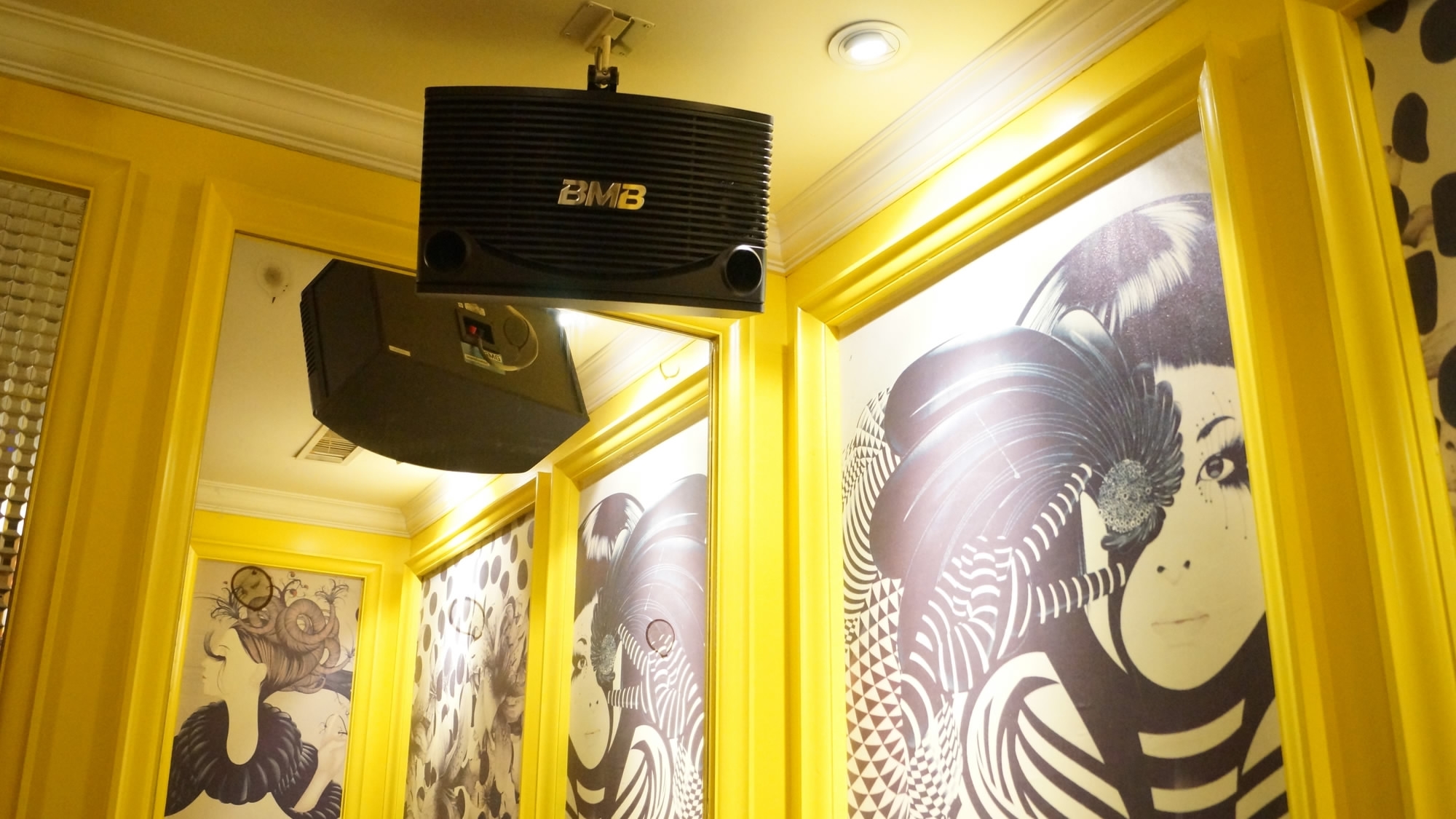
CFP Photo
MiniK, a brand launched by Guangzhou-based Aimyunion Technology, has claimed over 30 patents on its mini Karaoke booth, including five patents for utility models, 16 appearance patents, and six software copyrights and patent for invention. But their spokesperson has not given any reply on how to distinguish their product from others in the market. Homogenization left mini Karaoke box defenseless against either replicas or price war. When advantages becomes disadvantages, some believe that mini Karaoke booths will finally lose to its too-easy access.
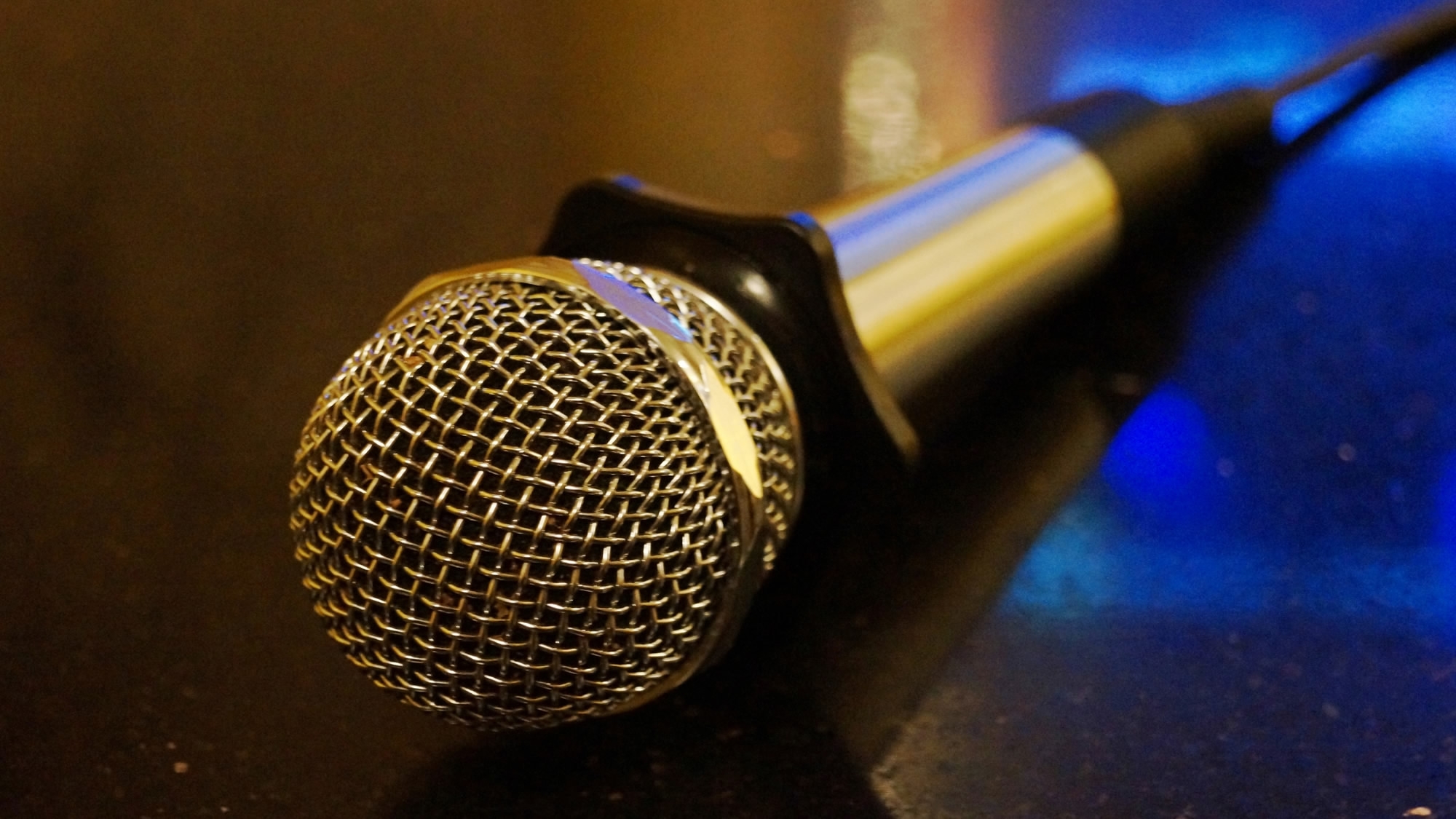
CFP Photo









